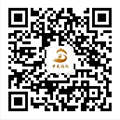Beijing is an important transport hub in North China with five ring roads, nine expressways, eleven National Highways, nine conventional railways, and two high-speed railways converging on the city.
Beijing Railway Transportation:
Beijing is one of the centres of China's railway network. There are four main railway stations in Beijing: Beijing West Railway Station, Beijing station, Beijing South Railway Station and Beijing North Railway Station (Beijing North railway station is closed due to the construction of Beijing - Zhangjiakou high-speed railway project).
Beijing has many high-speed rail lines including Beijing-Tianjin Intercity Railway, which opened in 2008; Beijing-Shanghai High-Speed Railway, which opened in 2011; and Beijing–Guangzhou High-Speed Railway, which opened in 2012.
Beijing Airports:
There are two civil airports in Beijing: Capital International Airport and Daxing International Airport.
Beijing Capital International Airport:
Beijing Capital International Airport is the second busiest airport in the world. Almost all domestic and international flights in Beijing stop and take off at Beijing Capital International Airport.
There are frequent flights to Beijing, Shanghai Guangzhou, Urumqi and international flights.
Daxing International Airport:
Located in southern Beijing's Daxing district, the new airport is expected to become China's air travel hub. It is 46 kilometres from Tiananmen Square, 55 km from the Xiongan New Area and 67 km from Beijing Capital International Airport.
Daxing Airport is connected to the city via the Beijing - Xiong'an intercity railway, the Daxing Airport Express Line of the Beijing Subway and two expressways.
72-hour visa-free Stay:
Since 1st January 2013, tourists from 45 countries are permitted a 72-hour visa-free stay in Beijing. The 45 countries include Singapore, Japan, the United States, Canada, all EU and EEA countries (except Norway and Liechtenstein), Switzerland, Brazil, Argentina and Australia. The programme benefits transit and business travellers with the 72 hours calculated starting from the moment visitors receive their transit stay permits rather than the time of their plane's arrival. Foreign visitors are not permitted to leave Beijing for other Chinese cities during the 72 hours.
Beijing Highway Transportation:
Beijing is connected by road links to all parts of China as part of the National Trunk Road Network. Nine expressways of China serve Beijing, as do eleven China National Highways. Beijing's urban transport is dependent upon the five "ring roads" that concentrically surround the city, with the Forbidden City area marked as the geographical centre for the ring roads. The ring roads appear more rectangular than ring-shaped. There is no official "1st Ring Road". The 2nd Ring Road is located in the inner city. Ring roads tend to resemble expressways progressively as they extend outwards, with the 5th and 6th Ring Roads being full-standard national expressways, linked to other roads only by interchanges. Expressways to other regions of China are generally accessible from the 3rd Ring Road outward. A final outer orbital, the Capital Area Loop Expressway (G95), was fully opened in 2018 and will extend into neighbouring Tianjin and Hebei.
Within the urban core, city streets generally follow the checkerboard pattern of the ancient capital. Many of Beijing's boulevards and streets with "inner" and "outer" are still named in relation to gates in the city wall, though most gates no longer stand. Traffic jams are a major concern. Even outside of rush hour, several roads still remain clogged with traffic.



































